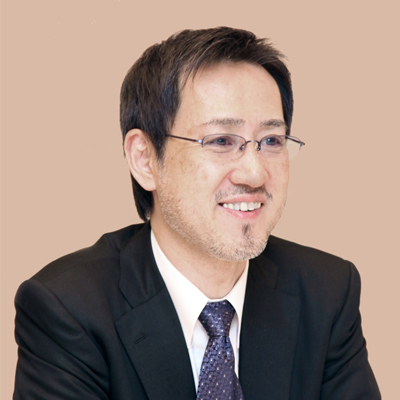Insight into dangerous influenza and ebola viruses drives effective vaccine development
Half a million people around the world die from influenza infections each year. Although influenza vaccines exist, frequent mutations in the viruses reduce their effectiveness and new influenza viruses can cause pandemics. These viruses cannot be eradicated because they are maintained in billions of wild birds. Likewise, Ebola viruses—which kill up to 90% of people infected—cannot be eliminated because we do not know how and where the virus is maintained in nature. There is an urgent need to improve vaccine and treatment options for the severe and often deadly infections caused by these viruses in order to eradicate their spread. Dr. Yoshihiro Kawaoka, Professor at the University of Wisconsin-Madison and the University of Tokyo is leading the way in identifying and developing novel vaccines and drugs to combat influenza and ebola viruses.
Dr. Kawaoka’s research focuses on understanding how influenza and ebola viruses cause diseases. He developed a revolutionary system—the “reverse genetics” system—to generate and modify influenza and ebola viruses at will. Using this method, Dr. Kawaoka looks at how some influenza viruses cause deadly diseases, whereas others cause only mild infections, and at how these viruses transmit from person-to-person. The system allows the exchange of genetic material between deadly and non-deadly influenza viruses, so lethal viruses can be made safe for use in both influenza and ebola vaccine design and production. His system has helped researchers identify some of the mutations that make these viruses dangerous, but additional contributing factors have not yet been identified; therefore, it is essential that this research continues.
Dr. Kawaoka and his team of dedicated scientists—whose specialties include molecular biology, animal studies, and computational analysis—collaborate extensively with researchers involved in many different analyses that complement their studies. These highly trained researchers perform their research in state-of-the art facilities that exceed biosafety and biosecurity standards, enabling them to work safely with highly infectious viruses in a biologically contained, secure environment.
Current research includes:
- Predicting the Future of Human Influenza Viruses - Because of frequent mutations in viruses, many strains of influenza viruses emerge each year. For this reason, sometimes influenza vaccines can be ineffective. Every February, an expert panel selects a vaccine virus for the next winter, using the information available at the time of their decision. The problem occurs when—between February and the next winter season—the virus they select may change. As a result, the public is vaccinated against strain “X,” but may become infected with strain “Y,” rendering the vaccine ineffective. Dr. Kawaoka and his team are studying the evolution of influenza viruses to predict future strains. His data are now taken into consideration by the expert panel for influenza vaccine strain recommendations. By predicting the evolution of influenza viruses, they can design vaccines that match a virus ahead of time and be prepared for new influenza strains.
- Developing a ‘Universal’ Influenza Vaccine - Four influenza virus strains commonly circulate together in humans, which is why we have a quadrivalent influenza vaccine. Because influenza viruses in humans change, those strains need to be changed in vaccines every two to three years. Also, new influenza pandemics (such as bird or swine ‘flu) break out, resulting in an urgent need for more effective vaccines. Using his novel reverse genetics system, Dr. Kawaoka and his team are trying to find a commonality among different influenza viruses, and to use that to develop a universal influenza vaccine. Current vaccine strains do not need to be changed. Instead, just one component of a viral protein could be used to cover all influenza viruses.
- Developing a Novel Ebola Vaccine - The recent outbreak of Ebola in West Africa resulted in an estimated 28,000 cases with 11,000 deaths, and its introduction into the U.S. and Europe caused widespread fear. There are currently no vaccines or antiviral treatments available to combat this deadly virus. Although a previous vaccine worked well in monkeys during clinical trials, its side effects were too severe to translate it to humans. Dr. Kawaoka and his team are using their reverse genetics system to generate and modify Ebola viruses to create novel, better ebola vaccines that do not have dangerous side effects. They use a modified Ebola virus that lacks an essential gene so that the virus cannot grow in outside the lab. In the lab, they can provide the missing gene product, so that the virus can grow like an authentic Ebola virus. They currently have a candidate virus vaccine that successfully protects mice, guinea pigs, and monkeys against a lethal infection of Ebola virus. Once the animal studies are completed, they will prepare vaccines for human clinical trials. They expect the first phase of clinical trials to be completed in five years, after which a larger clinical trials will need to be done.

Bio
Like many other kids, Dr. Kawaoka always wanted to do or invent something that would “save the world.” With that in mind, he entered Veterinary School to fight microorganisms that infect people and pose a threat to our food supply. He originally worked on bacteria, but his supervisor at the time suggested he perform his postdoctoral training with Dr. Robert Webster’s group at St. Jude Children’s Research Hospital in Memphis, Tennessee (one of the premier influenza virus research labs). It was then that Dr. Kawaoka switched to influenza virus research, a field in which he’s continued to work for the past 33 years.
Not long after Dr. Kawaoka joined Dr. Webster’s group, there was an outbreak of highly infectious and deadly ‘bird flu’ in chickens in the U.S., which provided excellent hands-on training (including collecting chicken feces) and—more importantly— opened Dr. Kawaoka’s eyes to the impact of influenza on livestock and humans. While global efforts have eradicated the smallpox virus, influenza and ebola viruses cannot be eradicated. Ever since Dr. Kawaoka realized that we will never be able to get rid of these viruses, he has been driven to better control them through tracking them, predicting their evolution, understanding how they cause disease, and ultimately developing novel vaccines.
He has published hundreds of scientific studies and won many awards. Dr. Kawaoka’s novel research has led to the identification of viral markers of severity, which are used by the Centers for Disease Control and Prevention (CDC) and the World Health Organization (WHO) to determine virulence potential of viruses. His reverse genetics system for influenza viruses is used by researchers around the world and has led to the publication of thousands of scientific studies worldwide. It is also widely used by vaccine manufacturers for influenza vaccine production.
Although he is very grateful for this recognition, Dr. Kawaoka’s dream is for his research to produce better or novel vaccines that benefit all of mankind. This motivates him to get up every morning and continue this work he is passionate about. He currently maintains two labs: one in Madison, Wisconsin, and one in Tokyo, Japan (where he studies the host response to infection).


